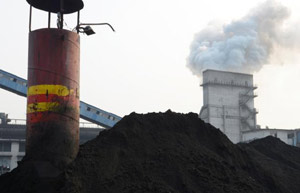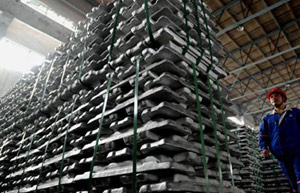Clean coal key to meeting global energy demand
By Greg Boyce (China Daily) Updated: 2014-11-10 10:14High-efficiency technologies pave the way for a lower carbon footprint
Every day, billions around the world light fires, prepare meals and heat homes with firewood, charcoal or worse ... a practice that releases dense soot and heavy smoke inside and out.
As we move toward the second decade of the 21st century, electricity depravation still takes a mighty toll: Some 3 billion people in India, South Asia and other developing areas rely on burning primitive biomass in their homes as a matter of daily survival.
The prevailing view: "If there is no fire in the house, it is not a house."
As many as half the world's 7 billion people awaken each day without modern energy. Simple needs like running water, preserving food and lighting homes, hospitals and schools are what matter to these families most.
In rural India, for example, where I recently visited, the heaviest burden falls on women and children who typically walk hours each day to secure firewood and fuel.
What is fiendish about this cycle is this very lifeline for daily survival is the harbinger of early disease and death.
By some estimates, breathing fumes from common indoor fires has the same debilitating effect as exposure to 400 cigarettes each hour.
Devastating illness results. Lives are lost prematurely. More than 4 million people die each year from the effects of this indoor smoke, representing the world's fourth-leading cause of death.
Everyone has the right to enjoy the same standard of living and the same standard of energy as the developed world. Finding solutions to meet these needs must be our first order priority.
There is a direct correlation between coal demand, economic activity and social progress, where a rise in coal use mirrors a rise in gross domestic product.
Around the world, tens of millions of people are leaving grinding poverty behind and entering an emerging middle class through the elevating hand of electricity.
China offers a remarkable success story, where the nation has used coal to lift 650 million people from poverty, reduce female illiteracy by nearly 80 percent, and decrease infant mortality by 70 percent since 1990.
During this period, GDP soared 850 percent and the use of coal-fueled power increased eight-fold.
Today the vast majority of Chinese citizens have access to electricity. Energy from coal was the essential catalyst for growth, creating a stunning transformation that the International Energy Agency has called "an economic miracle".
 |
 |
| China aims to lower share of coal energy to below 62% by 2020 | Bio-tech adopted for clean production in China |
- Cash crunch fans expectation on RRR cut
- US extends antidumping duties on China's thermal paper
- Modern food van with ancient look in Shanghai
- China home prices continue to cool in November
- Asia's top 3 billionaires all Chinese
- Old investment remedy the treatment for China's "new normal"
- China's solar sector opposes US anti-dumping ruling
- BMW to recall 846 cars in China
















